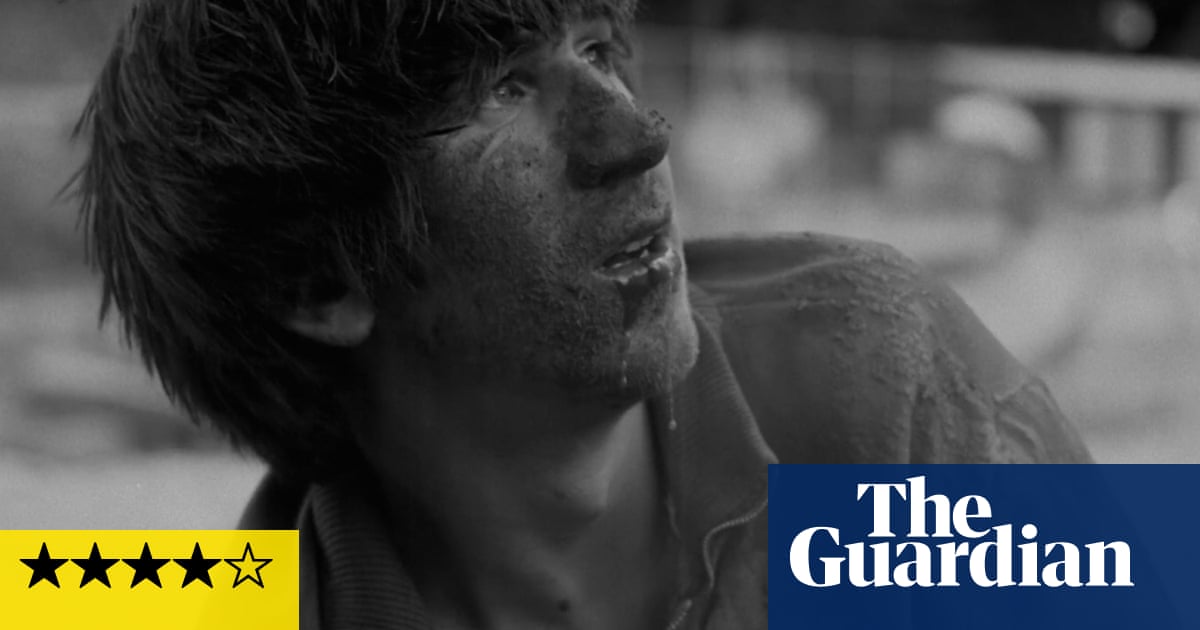Lucian Pintilie’s Romanian film from 1968 is a bizarre and wayward political satire that at first involves just a handful of people – and finally unveils a dreamlike crowd scene with hundreds of non-professionals swarming across the screen, their expressions of incomprehension and incredulity pressed into service for fiction. Yet the whole thing is stranger than fiction – more metaphorical, more metatextual than fiction – and, of course, taken from real life.
Pintilie co-wrote the screenplay with Romanian author Horia Patrascu, based on Patrascu’s novel about an extraordinary event that took place in the early 1960s. Two drunken, hapless youths were caught brawling at a riverside cafe and were made to re-enact the event in detail for a solemn instructional film produced by the communist party authorities to be shown in schools, offices and clubs as a terrible warning against alcohol and anti-social bourgeois delinquency. The two stars of this strange film are moreover tacitly expected to redeem their offence, to expunge their sins moment-by-moment, by recreating their lives in the service of state-sponsored morality. (The actual official film that inspired this, on which Patrascu worked as a crew member, presumably exists in an archive somewhere.)
A bleary prosecutor (George Costantin) and careworn schoolteacher (Emil Botta) are tasked with overseeing this earnestly high-minded project, to be filmed at the very cafe where the original events took place. However, they are more concerned with their own problems: the prosecutor’s marriage is crumbling and the schoolteacher has relapsed into alcoholic despair due to the death of his daughter. Scowling militiaman Dumitrescu (Ernest Maftei) represents conventional authority while the two offending teens are Vuica (George Mihaita) and Nicu (Vladimir Gaitan) who smirk and flinch with utter bewilderment at what is happening, as the director yells at them to hit each other in the face. They are moreover embarrassed to be having to do this for the amusement of a bikini-clad young woman (Ileana Popovici) who is hanging about, watching.
The punishment-slash-redemption involved in this “reconstruction” is a mixture of sophistication and crass official clumsiness. It is very heavy-handed, pedantic and intrusive for the state to humiliate two young people in this way, and such is the laxity and incompetence of the authorities that nothing gets done for hour after hour, despite the fact that the filming has to get finished before an expected crowd of football supporters shows up. The sweaty prosecutor is more interested in bathing his feet in the river, and even hints that this “film” is in fact just voluntary, not compulsory. The two boys, larking about, manage to scare away a local woman’s flock of geese; they must recover these creatures. Reconstruction demonstrates not just the inefficiency of the political apparatus, but that of movie-making itself, which always involves hanging around on location.
Yet it is also an unsettling incident of surveillance, scrutiny, intimate control; an attempt to invade the consciousness of the wrongdoer. The re-enactment is not just for the public, but also to compel the culprits to look at what they have done, to confront them with it in detail. Pintilie’s film is the exact opposite of BBC TV’s Crimewatch, which reconstructs unsolved crimes to catch the criminals; this is to further mortify the malefactors and anyone in the audience tempted to do something similar. Film is punishment; film is cruelty. Reconstruction is cousin to Powell’s Peeping Tom and Kubrick’s A Clockwork Orange; this is the postwar communist enlightenment: not an assault upon or imprisonment of the defendant’s body, but an incursion into his mind. Pintilie shows these state-sanctioned film-makers demand documentary realism, with grimly ironic and yet blackly comic results.
Reconstruction is on Klassiki from 19 June.
